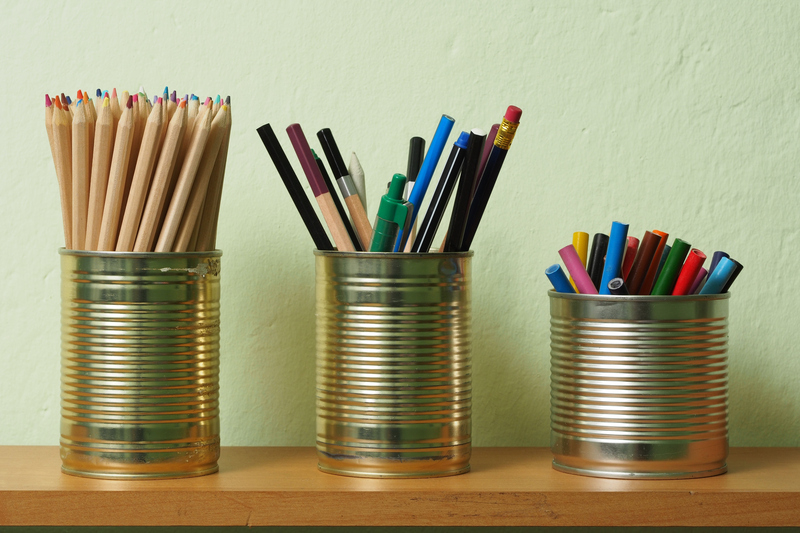Discover How to Save on Bulky Waste Collection
Are you looking for ways to save money on bulky waste collection? If so, you're not alone. Disposing of large items like furniture, appliances, mattresses, and garden debris can be costly and confusing. Luckily, there are several smart strategies and industry tips to help households and businesses reduce costs while ensuring their unwanted bulky items are handled responsibly. In this comprehensive guide, we'll show you how to discover significant savings, understand your disposal options, and manage bulky waste more sustainably.

Understanding Bulky Waste: What Is It?
Bulky waste, also known as large or oversized refuse, refers to items that are too big to fit in regular bins or bags. Typical examples include:
- Sofas and armchairs
- Wardrobes, tables, and beds
- Kitchen appliances (e.g., fridges, ovens, washing machines)
- Mattresses and bed frames
- Carpets, rugs, and large garden waste (branches, shrubs)
Disposing of such items often requires special collection services for bulky waste, which are usually not covered by your regular garbage pick-up. These services may come at additional cost, but there are multiple techniques to save on bulky waste removal.
Why Is Bulky Waste Management Important?
Effective bulky junk collection is crucial for environmental, legal, and health reasons. Improper disposal can lead to:
- Illegal dumping or fly-tipping - which is subject to heavy fines
- Environmental pollution - as many large items contain hazardous materials (e.g., fridges with CFCs, electronics with heavy metals)
- Public safety issues - such as blocked sidewalks, fire risks, and pest infestations
By understanding your options for affordable bulky waste collection, you can protect the planet and your pocket at the same time.
Top Ways to Save Money on Bulky Waste Collection
1. Check Your Local Council's Collection Services
Most local authorities offer some form of bulky item pick-up service for residents. This is usually the cheapest or even free option, especially if you:
- Have only a few items to dispose of
- Are eligible for concessions (pensioners, low-income households, etc.)
- Can wait for scheduled collection dates
How to access savings: Visit your council's website or contact their waste department to learn:
- How many pickups are offered per year
- What items are accepted
- If there are any applicable fees or discounts
2. Use Reuse and Donation Networks
Many bulky items are still in good condition and can be reused. Before tossing anything, consider these cost-saving alternatives:
- Charity shops - Many charities collect furniture and appliances for free if they're reusable or can be repaired.
- Online freecycling - Post items on sites like Freecycle, Facebook Marketplace, or Gumtree under the "free" section.
- Community swap events - These are often run by local councils or nonprofit groups.
Tip: The cost of donation is zero, and you may even get a tax deduction or a feel-good reward!
3. Break Down Items for Disposal
Did you know that some councils or companies charge by item or by volume? By taking apart beds, wardrobes, and other large items, you might reduce the overall space they occupy--potentially qualifying for a cheaper rate.
- Disassemble furniture
- Remove removable parts (legs, shelves, doors)
- Bundle similar materials (wood, metal, fabric) together
Always follow safety guidelines and, if possible, recycle parts at your local recycling center.
4. Pool with Neighbors or Friends
Pooling can deliver significant savings on bulky waste collection. If you know your neighbor or friends also have large items to dispose of, coordinate a group collection:
- You'll often split travel and pickup fees
- Private collection companies might provide lower rates for larger loads
- Shared pickups help to reduce environmental impact
Just make sure you check with your provider--some have restrictions on the number of households per booking.
5. Shop Around for Private Collection Services
If local government options aren't available and you have more than a few items, you might need to use a private bulky waste removal company. Don't just go with the first one you find--compare quotes!
- Ask if companies offer price-matching or discounts for larger loads
- Look for reviews to ensure reliability
- Confirm that they dispose of items legally and environmentally responsibly
6. Arrange a Skip or Man-and-Van Service - Smartly
Skips and "man & van" clearance teams are popular for large-scale declutters. Here's how to use these options while minimizing the cost:
- Book the right size: Too big, and you pay for unused space; too small, and you risk overfilling penalties.
- Sort items before collection: Some materials (like metals) may be collected for free or cheaper.
- Schedule during off-peak periods: Prices might be lower mid-week or in non-peak seasons.
Pro tip: Some skip companies offer discounts for mixed loads, or if you're situated near another client ("piggybacking").
7. Consider DIY Disposal at Recycling Centres
If you have a vehicle and a manageable number of items, taking bulky waste straight to your local household waste and recycling centre (HWRC) can be the cheapest option. Most HWRCs accept:
- Furniture
- Mattresses
- White goods
- Garden waste
This service is usually free for residents, but check any restrictions on van or trailer use. Bring proof of address and always check recycling center rules before you load up.
Busting Bulky Waste Collection Myths
Many people overpay for bulky item disposal out of confusion or misinformation. Let's clear up a few myths:
-
Myth: "I have to use a commercial service if I want a quick pickup."
Fact: Your council may offer next-day or next-week pickups. -
Myth: "All items must go to landfill."
Fact: Many items (metals, wood, white goods) are recycled, reused, or donated. -
Myth: "All professional collectors have licenses."
Fact: Always check for waste carrier licenses to avoid fines and illegal dumping.
Environmental Benefits of Responsible Bulky Waste Removal
Choosing eco-friendly bulky waste collection isn't just good for your wallet, but also the planet. Recycling, donation, and proper disposal prevent:
- Illegal dumping (fly-tipping)
- Overfilled landfills
- Toxic pollution from improper handling of white goods and electronics
- Missed opportunities to reuse valuable materials
Many private and council services now provide digital tracking and recycling certificates so you can see the sustainability impact of your disposal choices.

Checklist: How to Save on Bulky Waste Collection
- Check council services first for scheduled and discounted pickups
- Donate or freecycle usable items to charities or online platforms
- Dismantle furniture and recyclables to reduce collection volume
- Group collections with neighbors or friends whenever possible
- Compare private service quotes and ask about discounts
- Consider a skip or van clearance only after assessing size and sharing potential
- Take items to the local HWRC yourself if you can
- Demand licensed waste carriers to avoid fines and guarantee ethical handling
Additional Cost-Saving Ideas
- Watch for local council "free amnesty collection" days
- Ask appliance or furniture stores if they offer removal with your new purchase
- Get together in community clean-up events - many provide free disposal for participants
Conclusion
Saving on bulky waste collection is easier than you think. By combining council services, donations, dismantling, DIY drop-offs, and smart shopping for private options, you can cut your disposal costs by up to 80%! Not only does this approach help your budget, but it also supports your community and the environment. Next time you need to get rid of large items, revisit this guide for a proven, money-saving strategy on bulky waste collection.
Did you find this article helpful? Share your own tips for saving on bulky waste removal in the comments below, and help spread the word about responsible, low-cost disposal!
